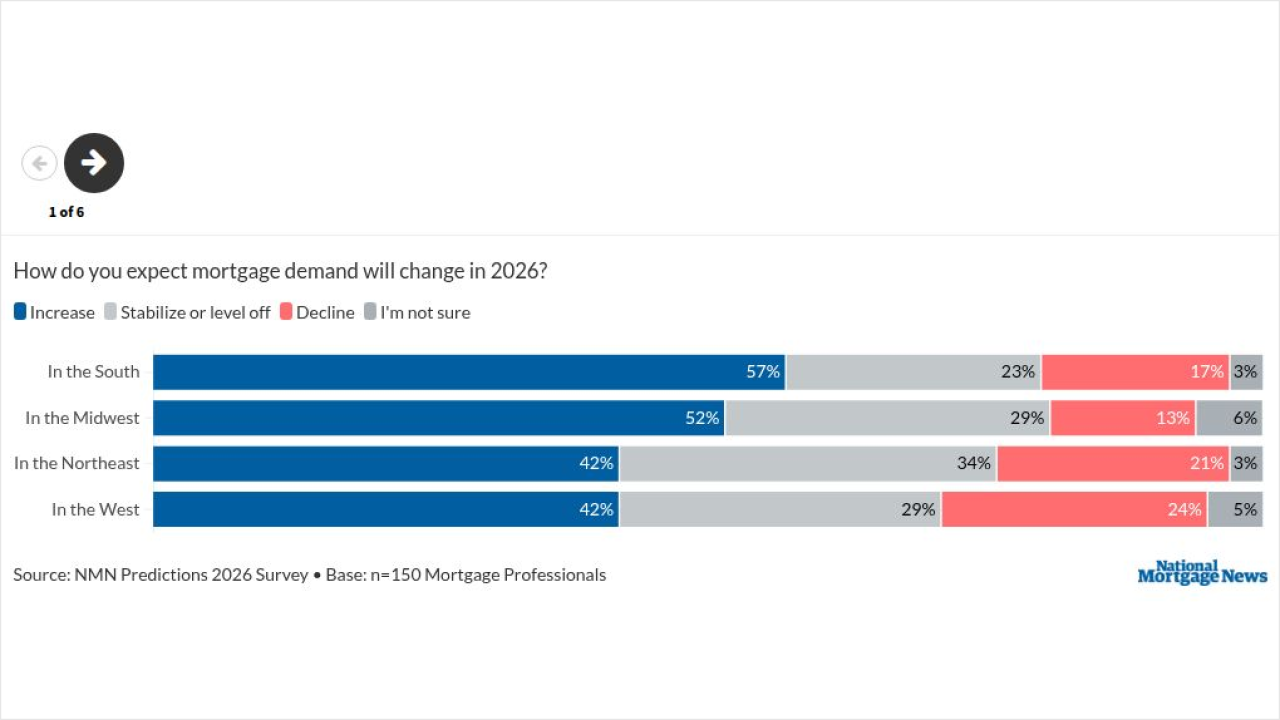Mobile wallets like PayPal, Venmo and Zelle are being used in an increasing number of transactions by U.S. consumers. But that can pose a quandary for mortgage loan underwriting when it comes to business owners whose revenue comes through these cash apps.
During the first quarter, Venmo recorded approximately $51 billion in payment volume, up from $31 billion one year prior and $6.8 billion in the first quarter of 2017,
Mbanc is a direct-to-consumer non-qualified mortgage lender whose customer base includes
But for loans to this group, underwritten using bank statements, these P2P transactions can lack explanation regarding the source, said Tabitha Mazzara, director of operations.
Underwriters reviewing that information are not comfortable enough or familiar enough with those payment methods.
"It is not a transaction they're used to seeing," Mazzara said. "It can definitely complicate the income calculation and raise questions that wouldn't be raised if in fact you were looking at a wire."

It can be a challenge, Mazzara said, but "what we find is the story usually tells itself. There is some detail provided in many of these cash apps."
For example, Mbanc recently did a loan for the owner of a construction company.
"Part of the payments to his business were made through the cash app, and it does have the sender's name on the details within the transaction, so we can see the method. We're able to map that to an actual contract for scheduled payments within the app," Mazzara said. "There's a lot of due diligence that can be done to further validate" the information.
Mazzara herself is a longtime mortgage industry veteran, going back to a time when loan officers started all of their transactions on a handwritten loan application form, with manual verification processes.
Now that information is online and accessible at the originator's fingertips, she said, adding "we're able to utilize and leverage technology to validate information and to tie together all of the details that would give us a comfort level to go forward with someone who is receiving revenue through cash app payments."
Even though the loans are manually underwritten, Mbanc has an automated system that will pull deposits, organize them and identify the cash app.
"It will identify how many times Venmo has been identified in a specific statement over a specific length of time," Mazzara said. "It will extract and then correlate all the information, [bring it] up to the underwriter and they can see the trend."
Mbanc leverages technology to ensure that it is properly mitigating the risk for each asset, and it is able to move the mortgage application as quickly as possible through the process, she added.
Besides mortgages for self-employed borrowers, Mbanc does business purpose loans with debt service coverage as the primary underwriting criteria.
For all of its products, most borrowers would otherwise be agency eligible except for the particular circumstance that brought them to Mbanc. The average borrower has a 720 credit score with a 75% loan-to-value ratio, although in some cases it will go to a 600 score or a 90% LTV.
"We do make exceptions, but we're very, very careful to ensure that we have a comfort level with an individual's ability to repay" and the business model, Mazzara said. "I'm an old-timer, it's hard to pull the wool over my eyes."
Even for the borrower that has a 600 score, the LTV must be reasonable, "with a client that can demonstrate that they have been responsible although their credit score doesn't dictate it," she said.
And Mbanc is strictly a call center operation. It doesn't have any branches. That model lets it best serve its target market, the company has said.
"Most of our borrowers have a very complicated financial portfolio and many of them do not receive financing simply because they're a bit too complex," Mazzara said. "It's a pretty intense underwriting process and I think you have to allow the borrower to feel at ease."



